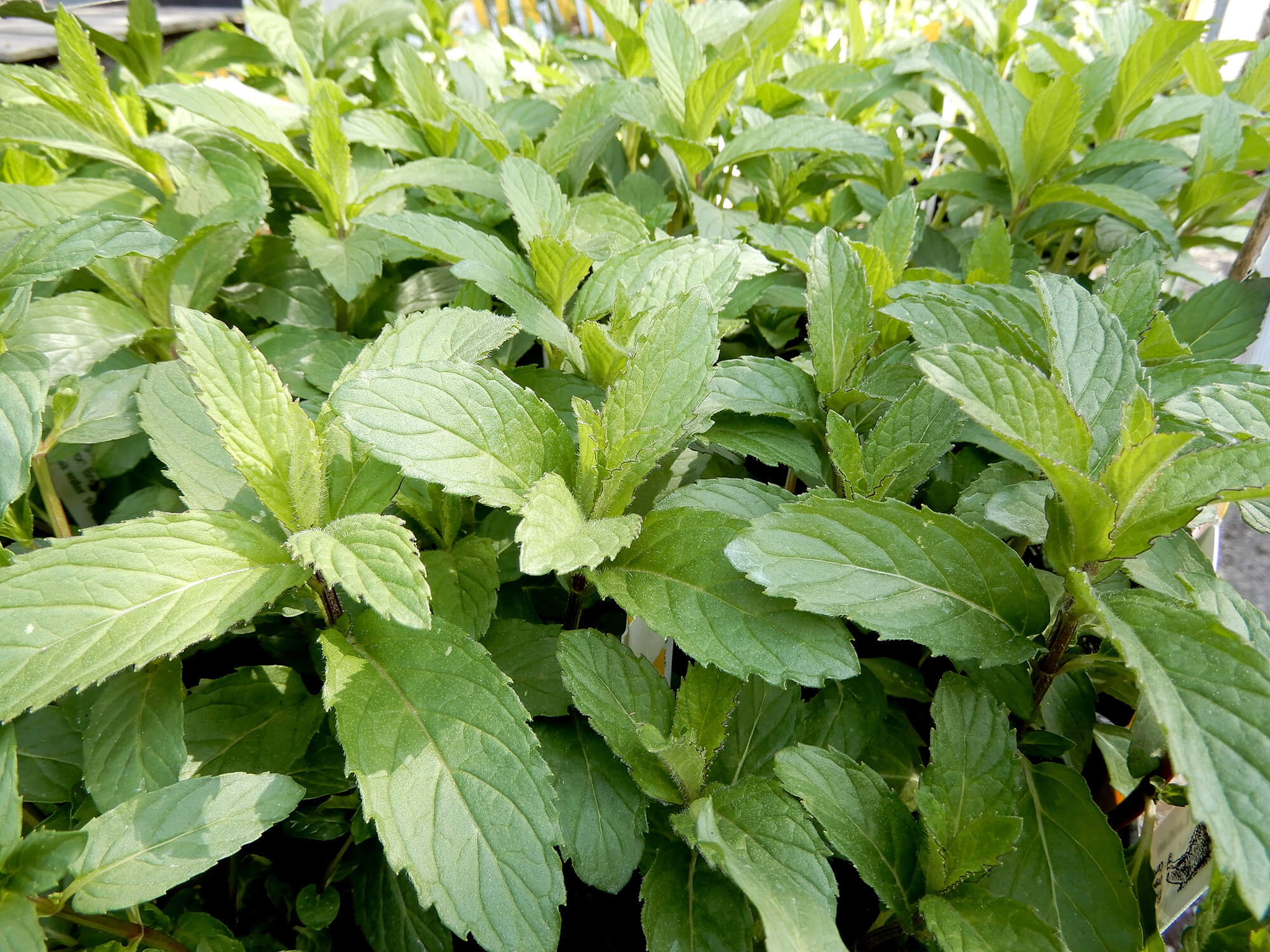The act of gardening can be a way to take a break from the rat race of urban living. Infusing a sense of wellbeing with a cup of homegrown tea can take your stress down another few notches.

Imagine putting down your device, walking into your garden, picking some young stems, waiting for the kettle to boil while examining the fragrant leaves you have in your hand. Crush them with reverence and put them in your favorite cup. Pour the water over and inhale the heavenly scents. Steep for a few minutes, sit in the garden and contemplate with curiosity how other beings go about their day. Transported to a better place yet?
Check the herb section for plants of these perennial mint family herbs:
Spearmint (Mentha spicata)
Grow in a container, as it is very invasive. Even if you really love mint, you’ll be sorry you planted it in the ground some day in the future. It needs good drainage, constant moisture and part shade. Morning sun is perfect. Mint can help digestion and calm nerves.
Lemon balm (Melissa officinalis)
This lemony mint cousin tends to spread more from seed than roots, so pick off the flowers when you see them. It also takes to being in a container and in part shade. Tea made with it soothes the nerves and relaxes.
Catnip (Nepeta cataria)
Your feline friends or acquaintances will covet this plant so protect it from being rolled on by covering it with stiff wire mesh until it’s well established. It can do with more sun but still likes it’s feet moist. Catnip has a grassy flavor that complements other herbs. It is said to help indigestion and reduce restlessness and anxiety.
Anise hyssop (Agastache foeniculum)
This hardy herb has purple flowers that attract bees and butterflies. The plant is quite drought tolerant once well established and likes a full sun position. The leaves make an anise-flavored tea that helps clear congestion.
Whether you cluster some pots together near your back door or on your deck, knowing you can take a break and imbibe your garden can help you remember to relax and breathe.
–Helen


